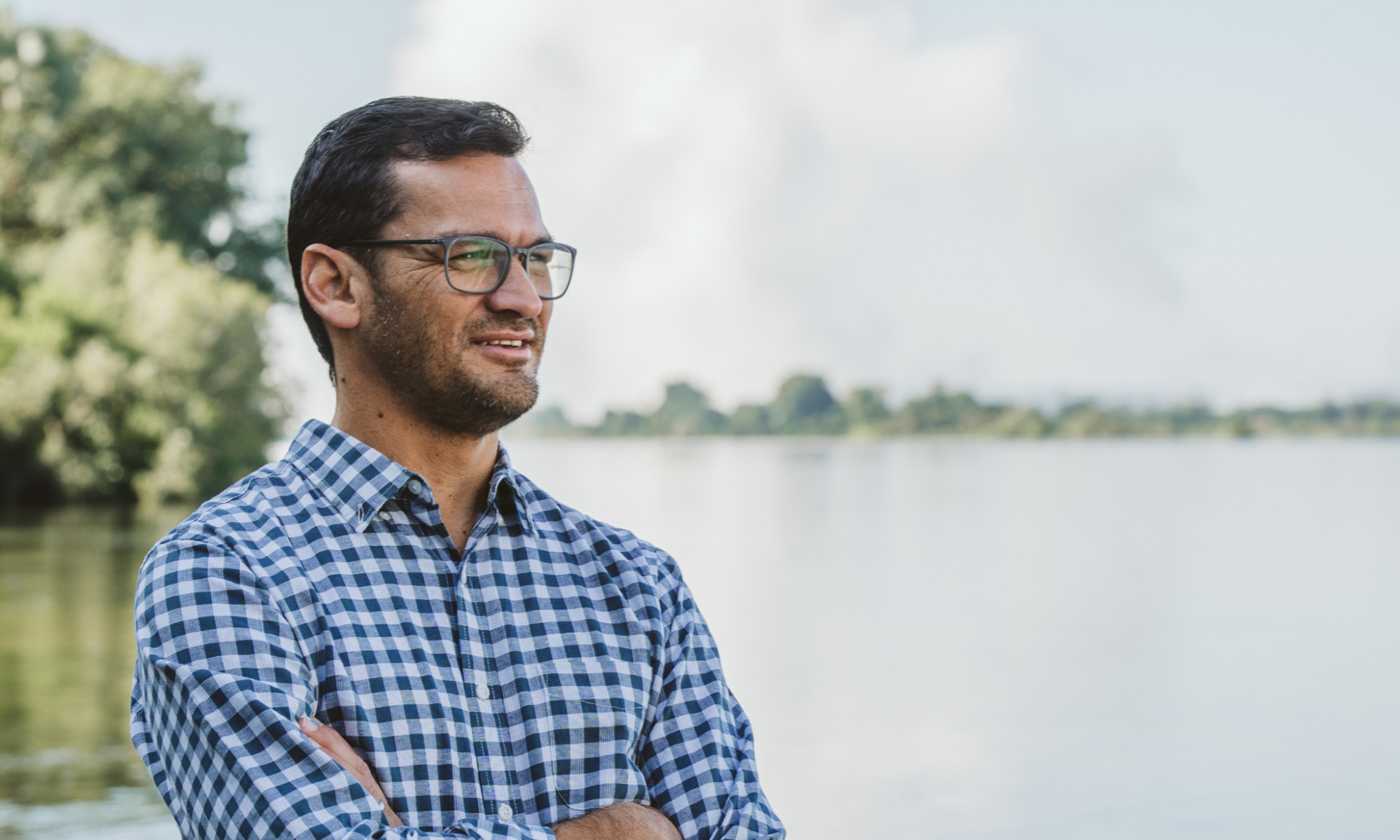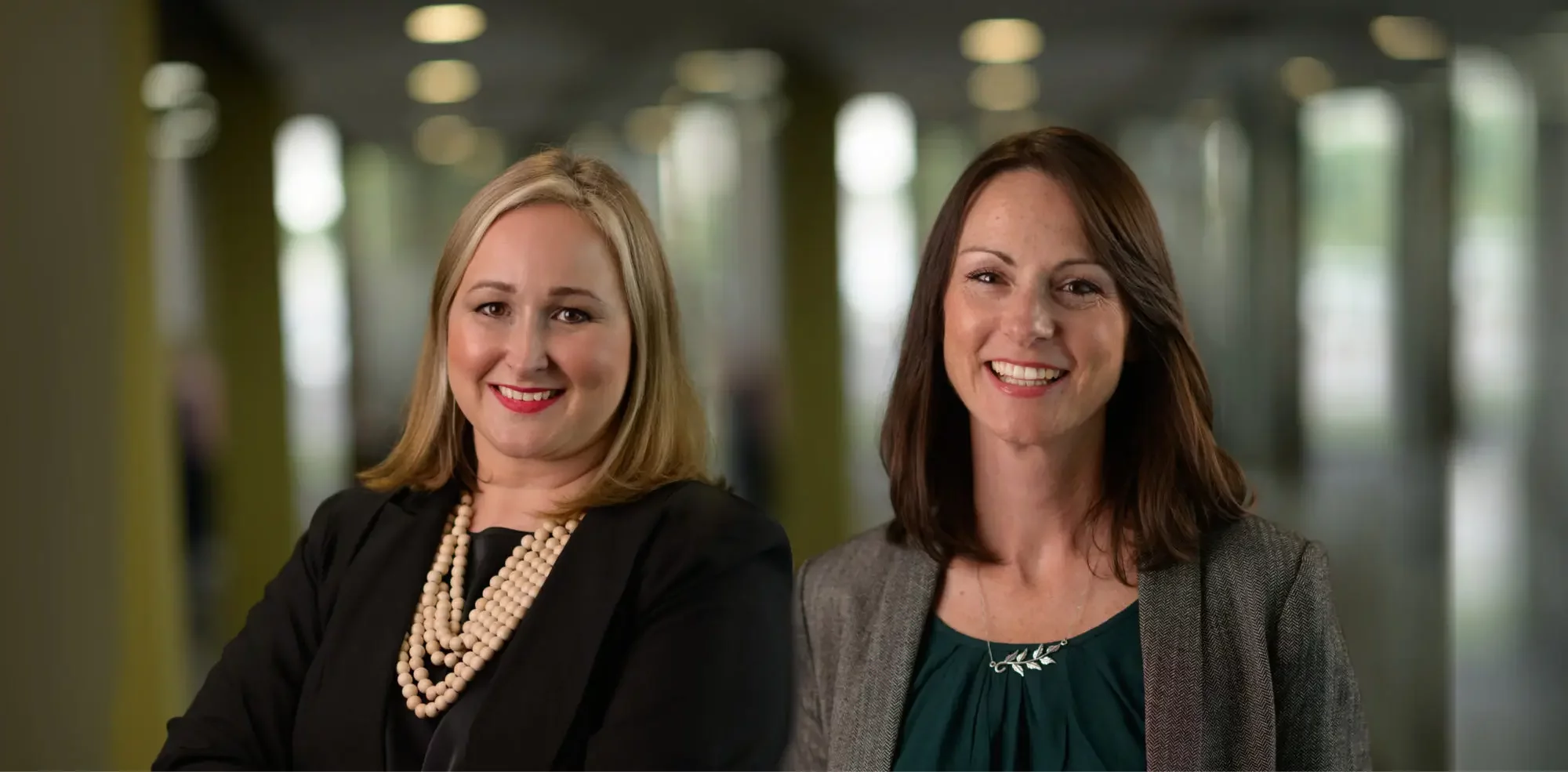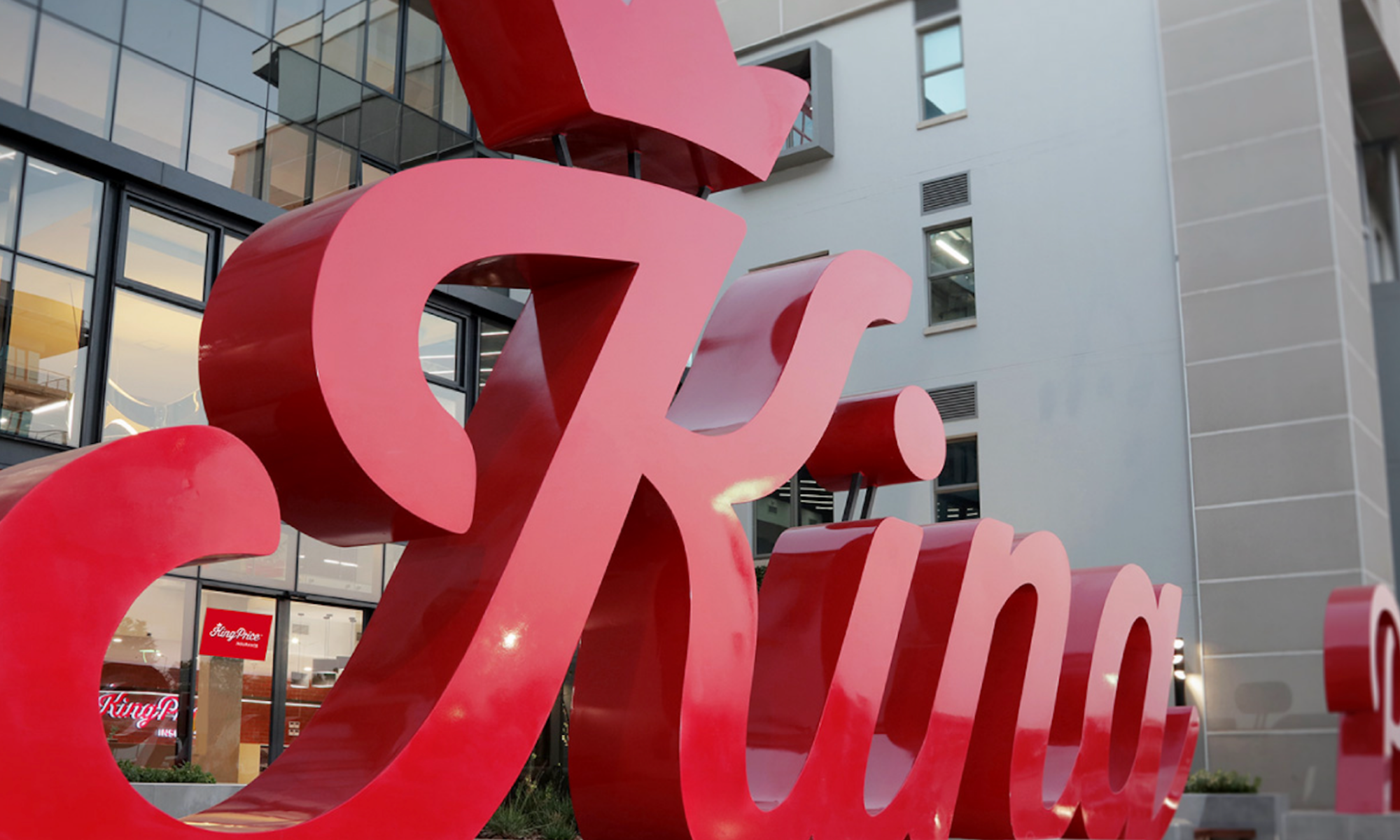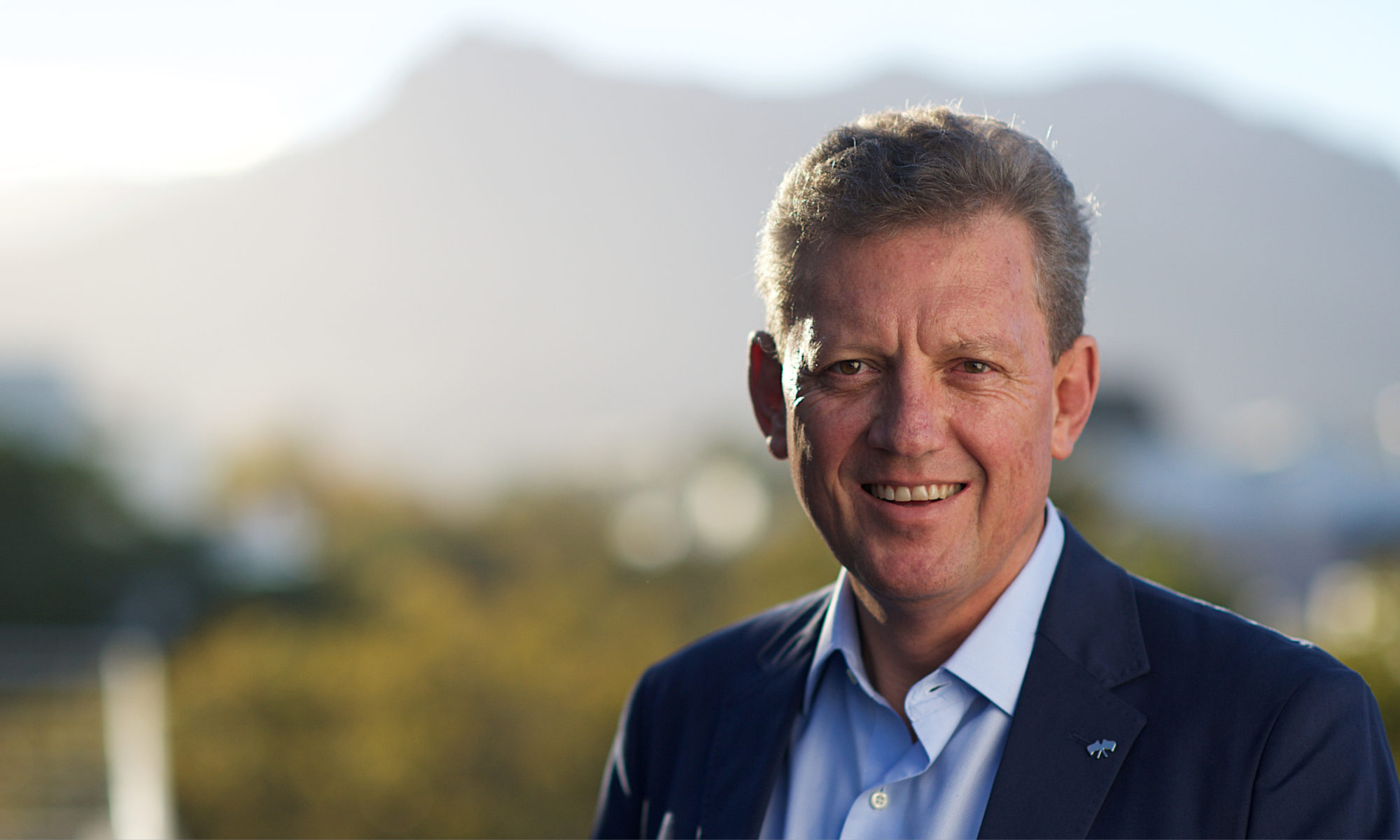In Luke 12, Jesus draws from the parable of a rich man who stored up treasures on earth at the expense of heavenly wealth. Drawing from the warnings and wisdom expressed through this parable, Mergon CEO Pieter Faure shares some of the thinking around biblical stewardship that has shaped our 4-decade journey at Mergon. In this CEF white paper, he unpacks some of the flawed thought patterns that we as stewards could just as easily fall into, and how can we embrace a different kind of stewardship.
In Luke 12 v 16–21, Jesus tells the well-known story of a successful farmer and businessman who in a particular year had been blessed with an abundant harvest. In fact, the blessing was so great that he asked with angst, ‘What shall I do? I have no place to store my crops?’
His solution was to tear down his existing barns where he stored his wealth and build a bigger one. Having done this, he sat back, content, with a store of wealth to last a lifetime and the prospect of living the good life.
Yet despite his meticulous planning, he miscalculated in one respect; that very night his life would be demanded from him, and all he had built up for himself would go to someone else or to ruin.
Jesus closes with a warning to all of us: ‘This is how it will be with whoever stores up things for themselves but is not rich toward God.’
Stewarding our barn today
At Mergon our mission is to steward all the resources entrusted to us for Kingdom impact, that is to see lives transformed through the power of the gospel and culture redeemed through the way we manage and multiply God’s resources. In a way one could say that we are stewarding a ‘modern day barn’.
Outwardly this makes us very different to the farmer in Jesus’ story who is stewarding the barn and its resources purely for selfish gain. Yet this higher purpose doesn’t vaccinate us against unintentionally succumbing to the same flawed thinking that led to the farmer’s demise.
What are some of the flawed thought patterns in this parable that we as stewards could just as easily fall into, and how can we embrace a different kind of stewardship? Here are some of the thoughts that have been shaping our journey at Mergon.
We are sons before stewards
The farmer in Jesus’ parable seems to have found his identity in his success, the size of ‘his’ barn, and his self-sufficiency—it defined and changed him. As stewards of capital we need to pause and ask ourselves from time to time, ‘Wherein do we find our identity; what ultimately defines us?’
I, like many of you, may be quick to contest that my identity is secure in Christ. Yet the reality is that after many years as CEO of Mergon my identity could so easily be defined by ‘what I do’ or by Mergon’s success rather than ‘Whom I belong to’.
I need to remind myself daily that I am a son before I am a steward. Like the farmer in the parable, my life may be demanded from us this very night. Might it be that, when I come face-to-face with God, the first thing He says to me is, ‘Welcome home, My beloved child,’ before He says, ‘Well done, good and faithful servant.’
The barn is not our source
The farmer in our story clearly viewed the barn as his source of security and provision. He lost sight of the fact that no matter how great the barn is, all its contents are temporal and the result of God’s gracious and faithful provision.
During Covid, Mergon’s cashflow came under severe pressure. At one point it seemed that we would be unable to meet our funding commitments to our various ministries partners. In this difficult time I wrestled with questions like ‘Who will provide for our partners if Mergon can’t?’ and ‘What does this say about our stewardship?’ It was a heavy burden to carry.
Eventually God, in His graciousness, brought me to a place of true surrender. This came when I realised we needed to write a letter to the ministry partners who received Mergon funding. In it, we transparently explained that henceforth our funding commitment would be a month-by-month faith journey—whatever God provided, we would distribute.
It was one of the hardest letters I’ve ever had to write; it felt like we had failed in our stewardship. Yet once it was sent, a huge burden lifted. It was as though, by declaring God to be our true Provider, our faith in Him and reliance on Him had set us free.
The response from our ministry partners was overwhelming. They deeply appreciated our vulnerability, they prayed for us, and some even offered to forfeit their financial benefit to other ministries who might be in greater need. It was a beautiful moment of solidarity, where funder and beneficiaries stood in unity as true partners in the gospel, together trusting God to provide so that we could each play our part in advancing His Kingdom.
God was faithful to provide throughout this challenging period and by grace, Mergon managed to fulfill all its financial commitments.
We need to discern the season
The farmer in the parable had a real problem—his barn was overflowing. His solution was to build a bigger barn. Yet, he was not condemned for building a barn or for building a bigger barn—but rather for not being rich toward God.
How different the outcome might have been if he had paused and asked, ‘God, this is your harvest and your barn; what will you have me do with this? How do I use this to be rich to you?’ One can only wonder what creative suggestions God may have had for him.
Ecclesiastes says “There is a time for everything and a season for every activity under the heavens . . . a time to tear down and a time to build.”
As stewards of Kingdom capital, we need to pause from time to time to discern the season we’re in—is it a season to build or to tear down, a season to invest or a season to give? It will be different for each of us, depending on where we are on our journeys and what God has called us to. But if we truly believe God owns it all we can submit all to his plans and not just a portion of our proceeds.
In reflecting on our Mergon journey, there have been two distinct past seasons with a new, third season beckoning.
Season one was about building the barn. Mergon’s journey started in 1980 with a desperate commitment from our founder, Francois van Niekerk, to give 30% of his near bankrupt business to serve God’s Kingdom, if He would somehow give a breakthrough. The breakthrough came and in the years that followed the business prospered from those humble beginnings. Francois’ heart was for Mergon to impact the Kingdom but he knew it was a time to re-invest in order to build up a storehouse of capital that might be released more fully at the appropriate time in the future.
In 2008, after 28 years of building, Francois and the trustees sensed that the season had changed.
In Mergon’s second season we threw open the barn doors. Francois handed over operational leadership to a newly established team tasked with stewarding Mergon’s resources. The original 30% of assets committed to Mergon was increased to 70%. We invested in numerous early-stage businesses, establishing an active presence in the South African business community – its impact through funds distributed spread across Africa and the Middle East. We’ve also developed innovative collaborative initiatives to bring about social change in South Africa.
The leadership team and board once again sense that Mergon is on the brink of a season change. We are still discerning what this might look like but it is challenging us to rethink some of our core beliefs around our stewardship call, such as “stewardship control vs. stewardship released,” “building stewardship capacity vs. enabling a stewardship community,” and “stewarding resources for return vs. sowing resources for multiplication.”
Whatever it may be, the most important thing is that our posture is one of open hands and prayerful hearts toward God, to wait on Him to show us what He has in mind for Mergon’s next season. As stewards we need to release our plans for the Mergon-barn into his hands to fulfill his purposes through it.
In Conclusion
In conclusion, courageous stewardship is an inside-out journey. It starts with us being secure in understanding our identity as children of God, loved and accepted, independent of our stewardship calling. It invites us to lay down our gifts and talents at the foot of the cross to fully rely on Him—the true Owner, the abundant Source of provision, and the Sustainer of the work. Lastly, it requires us to submit our plans and models to Him, seeking Him and waiting to hear His heart for the season we are in and the plans He has through which we are to accomplish His work.
From that place of being fully surrendered, we can walk with a yoke that is easy and a burden that is light. We can rejoice in the impact and success we see, without being overwhelmed by challenges and failures we go through. We can hold lightly to models, strategies, and plans yet bring to bear all our creative, daring, faith-filled energy to fulfill our stewardship calling and shine the light of His Kingdom into the places He has called us to be.




